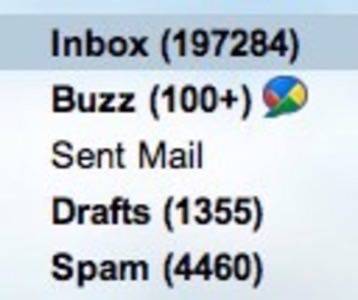If there’s one thing every entrepreneur realizes before launching a new venture, it’s that one of the most important steps toward success is getting your name out there. If you’re new to the startup game and don’t have a reputation upon which to announce a new company, public relations (PR) is likely at the forefront of your mind as you build your startup. Most startups, however, are looking to penny-pinch in any way they can in order to bootstrap their businesses, so how can you get the word out on a budget? Here are a few tips.

Word-of-Mouth
One of the best ways to help spread the word about your startup is to turn your customers into grassroots advocates for your service. This is precisely what premium WordPress hosting solution Page.ly has done. “Our entire first year, besides sponsorships, we probably spent $1,000 on advertising,” co-founder Joshua Strebel told me in an interview last week. “We didn’t see it as a necessity because we relied on word-of-mouth.”

The advantage young companies have over larger ones is the ability to interface with customers on a more personal, one-on-one level. By being personable and learning the names of his first 100 customers, Strebel was able to turn his customers into a PR machine. Combine this with the ease at which any company can market itself with social media and getting your name out there on a budget has never been easier.
Befriend the Bloggers
Yeah, customers are great for spreading the word, but it’s not likely that they will write your press releases or get you coverage in the media. Instead, this is where you need to put in some effort. If you can write coherent English, you’re probably okay to write your own press releases early on – just post them to your company blog and share them with the press. How do you do that? Here are a few ways to get some press attention.
First – seek out the relevant journalists. We all write about different things, but we have our own niches and interests that should be apparent in our previous story selection. I’m happy to pass along stories to other authors, but much less likely to compulsively delete the email if it fits my interests as a writer.

Second – be friendly, and be human. Personally, I don’t pay as much attention to emails with big capital letters that are just copy and pasted press releases. Write me an original, personalized email, addressed only to me (not blasted to some mailing list), that is concise and to the point.
Third – forget email. Maybe I will regret writing this, but I would love if someone would accost me on Twitter about a possible story. This doesn’t happen nearly enough as it should. Don’t just spam me with a link to your presser; send a nice personalized message reaching out and I am far more likely to respond to it than I am to any email. If you haven’t realized it already, I have an itchy “delete” trigger finger for my inbox. Twitter is a bit different.
If you would like a great example of someone who is crushing it along these lines, look no further than Blank Label’s Danny Wong. Danny reached out to me early this year and I interviewed him about working in a distributed team, but since then he has stayed in touch, stayed friendly and has simply done the marketing thing right.

He will even introduce me to friends of his or other companies in his space for other stories. Journalists love people like Danny, and he’s just a college kid. He also recently wrote his own article about talking to journalists (for the Huffington Post no less), so give that a read.
Win a Free PR Give-away
Okay, this is less likely to be a real solution, but there is actually a contest of this sort going on right now. The PR firm Vantage Communications is giving away $25,000 worth of free PR to one lucky technology company with a compelling story. The value equates to 20 hours of consulting a month for six months. The contest is in celebration of the company’s 20th anniversary, so you’re not dealing with some upstart PR firm either.
What other ways are we leaving out? How else can a startup market itself for little to no cost? Leave us your suggestions in the comments below!










